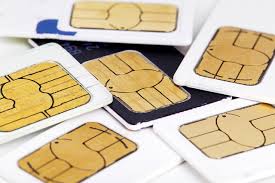FAQ: What is a SIM Card?
May 29, 2015/
If you’re delving into the world of Prepaid phones and looking to bring your own device (sometimes called BYOD) then you’ve probably seen phone pages and other users refer to SIM cards of various sizes with specific carriers. Other carriers, however, don’t use them. But no one seems to take a moment and explain exactly what a SIM card is, why and when you need one. Well, that’s what we’re here for!
What is a SIM card?
There are many different kinds of networks and companies that use various configurations of bandwith to make up their own networks. So how does your phone know which networks it should be connecting to? Well, that’s basically where the SIM card comes in. SIM stands for Subscriber Identity Module and, as the name implies, this little card is a form of personal identification between you and your mobile carrier. Basically, SIM cards are similar to a driver’s license: they let the carrier know that your device has been cleared to access the network and lets your device know which network it should be connecting to. The SIM also sends out security information so that you can connect safely to whatever network you’re using.How do I know what size SIM to get?
There are several different sizes of SIM cards including standard, mini, micro and nano. Most of the newer phones use a micro or nano SIM cards. These cards are exactly the same; the only different is the physical size of the card which may be smaller to accommodate the thinner, lighter design of some phones. Check with your carrier prior to purchase to be sure that the SIM is the right size for your device.What do SIMs cost?
This is a trickier question and depends entirely on the carrier. Some companies include the cost of the SIM with the phone, while others will charge up to $20 for a SIM card. Keep an eye out for deals, as many carriers have periodic $1 SIM sales.Do I need a SIM card?
The short answer is maybe. The United States actually has two different networks: CDMA and GSM. If you are using a GSM network (usually supplied by T-Mobile, AT&T or their affiliated providers) then you will need a SIM card. If you purchase a phone through one of these carriers, then the device probably already has a SIM. If you’re activating your own device, then you’ll probably need to purchase a SIM card. On the other hand, if you’re using Sprint or Verizon, then you have a CDMA network and this network generally does not require a SIM card. Instead, these carriers rely on serial numbers for identification. However, even CDMA networks will sometimes require a SIM for LTE networks. This is technically a different kind of SIM than GSM carriers use (sometimes referred to as UICC) but still functions the same. Check with your CDMA provider to see if you need to purchase any kind of SIM to use their LTE network, as it will vary from carrier to carrier.]]>
Posted in FAQ

